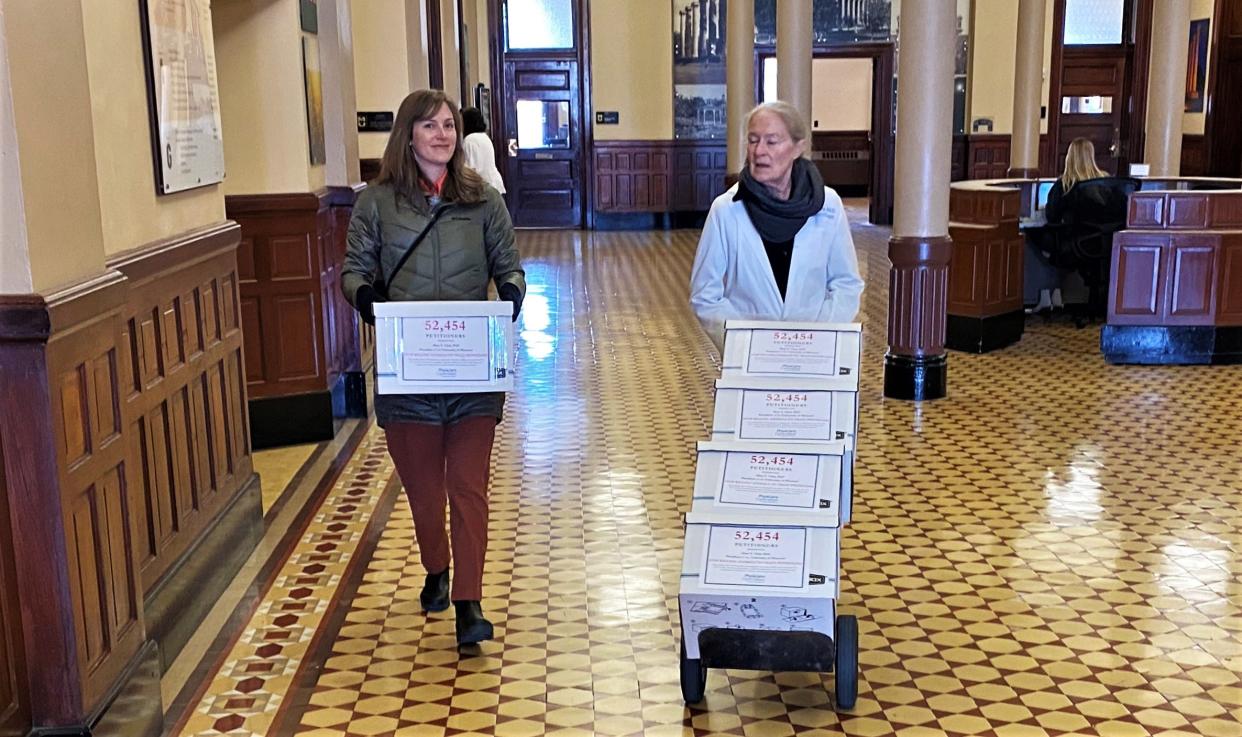Doctors' organization protests at MU over using animals for emergency medical training

- Oops!Something went wrong.Please try again later.
Using pigs to train emergency medical residents at the University of Missouri, then killing them, is a practice that is cruel and no longer makes sense, said Kerry Foley, a retired emergency medical doctor with the Physicians Committee for Responsible Medicine.
The organization staged a protest Thursday in front of Memorial Union, holding signs reading "MU Stop Killing Animals" and "Modernize Medical Training." A large banner read: "President Choi: Spare animals, improve medical training."
Human simulators work better for training than pigs and pigs are good for only one use, Foley said.
"We feel that this is unnecessary and cruel and also, in my opinion, sub-par training," said Foley, who practiced in the Washington, D.C. area, including at Georgetown University Hospital.
MU is one of only eight of the 277 emergency medical residency programs in the country that continues to use live animals for training, she said.
The organization previously came to campus in 2020, before the COVID-19 pandemic shut down campus.
MU rarely uses pigs to train emergency medical residents, said MU spokesman Christian Basi.
"We have a world-class training center that is used for a large part of our emergency medical training," Basi said.
There are rare instances when the simulation isn't sufficient and around six pigs each year are used for the training. Handling live tissue provides a better training experience, Basi said.
"Our goal is to give the best training possible so when that individual comes to the emergency room our individuals are receiving them, they have the best training possible," Basi said.
Use of the animals is overseen by a committee that goes beyond the requirements of the federal government, Basi said.
Billboards also have gone up around Columbia delivering the organization"s message.
MU has several uses for pigs, including breeding them with genetic mutations for organ donations. A pig heart using a gene edit developed at MU last year was for the first time implanted into a human.
Foley said she has opinions about that, but wanted to stick to talking about the organization's issue of concern.
At the conclusion of the protest, Foley and organization member Reina Pohl delivered boxes containing 52,454 petition signatures to the office of Mun Choi, MU chancellor and system president. Choi's staff was polite and cordial, as were Foley and Pohl. It's unknown if Choi was in his office when the delivery occurred. His office door was closed.
Unaware in the auditorium were hundreds of high school sophomores from Columbia Public Schools screening a film as part of the True/False Film Fest.
Roger McKinney is the Tribune's education reporter. You can reach him at rmckinney@columbiatribune.com or 573-815-1719. He's on Twitter at @rmckinney9.
This article originally appeared on Columbia Daily Tribune: MU one of only eight institutions using pigs to train residents

